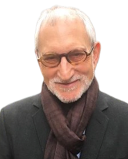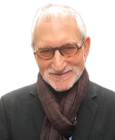Stress
The Arts Can Propel Us From a Stressful Present to a More Humane Future
A Personal Perspective: Our train to the future is about to leave the station
Posted December 2, 2021 Reviewed by Lybi Ma
It is now commonplace to state that we live in troubled times. A new variant of the Covid-19 virus has been identified, which probably means that the pandemic won't be ending anytime soon. This, in turn, means that our disrupted patterns of family and social life will persist well into the coming year. Given the ongoing degradation of the environment, It is not unlikely that future viruses will jump, as my West African friends like to say, from the bush to village.
Beyond the pandemic, there is the persistent presence of dysfunctional politics and the scourge of gun violence in households, on the streets, and in schools. Ongoing high levels of human-produced carbon emissions have warmed the planet. As a result, rising temperatures have melted glaciers, produced devastating superstorms, and triggered widespread floods and enduring droughts.
It is not easy for any of us to live in these conditions. It has been particularly difficult for my students.
I can report from the frontlines of the university classroom that our troubled times have been devastating for many students. Since we have gone back to in-person instruction, many of my students are struggling. The stresses of dealing with Covid-19 protocols as well as living in these uncertain times have, as they tell me, affected their mental health. Many of them frequently skip classes, miss exams, and fail to turn in their work assignments. Like most of us, they are suffering from burnout.
For many of us, contemporary life is like being stuck in a crowded train station in which the arrival-departure board says: "The system is down. No trains are scheduled to arrive or depart." In this metaphoric space, we are all stuck in the doldrums: We can't return to where we were and can't proceed to where we are going.
How can we emerge from such an emotionally devastating space?
I thought that if I attended my profession's annual meeting, my passion for life might be reignited. I'd travel to a different city, meet up with old friends and colleagues, make new collegial connections and learn something new—an uplifting experience. And yet, fears of Covid-19 exposure would certainly limit in-person attendance. What's more, the thematic topics of the meeting—truth and responsibility, the ethics of doing social research, the ongoing threat of climate change, and the persistence of systemic racism and social inequality—promised to produce in me a stressful reckoning about the state of the world, more doom and gloom.
Stuck in the doldrums, I Initially decided not to attend the meeting.
Then I received an invitation to participate in an off-site event at the meeting: "The Creative Anthropologist's Notebook: Salon with the Ethnographic Arts." Five scholar-artists (two poets, a singer-songwriter, a writer, and a musician) would perform before an audience of people, who like me, might be seeking a respite. The invitation reminded me of a passage from Nietzsche’s Birth of Tragedy Out of the Spirit of Music, in which the great philosopher suggested that when you reach an existential impasse, seek the remedy of art. I attended the salon and read a story. The experience didn't disappoint. In the words of singer-songwriter-anthropologist Kristina Jacobsen, the salon was an "amazing, life-filled and life-giving evening of ethnographic arts: poetry, song, creative non-fiction and more."
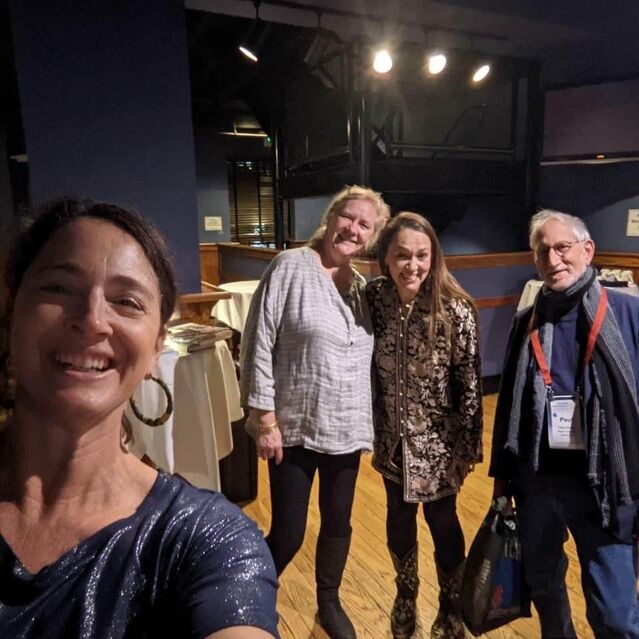
Another off-site spirit-lifting event featured Famoro Dioubate, a world-class master of the West African balaphone (a West African version of the xylophone). For the audience, the seductive pulse of the Famoro Dioubate band created an immediate sense of social harmony and shared purpose. After the concert, Famoro Dioubate, who comes from a centuries-old line of Malinke griots-musicians, pointed to his instrument.
"This balaphone," he told me, "comes from the bush. It holds the spirit of the bush."
"We must respect the bush," I said.
"Yes," he said shaking my hand as he smiled broadly, signaling the silent presence of mutual recognition.
We both knew that the sounds of the balaphone bring harmony to a troubled world. The same can be said of the sensuously contoured sounds of words and music or the soul-searching representations created in film, media installations, sculpture, and painting. Although we are mired in the stresses and strains of the current moment, the arts, ethnographic or otherwise, can enable us to regain our sense of well-being, and recapture our humanity.
We are all stuck in the crowded train station, but if we allow the arts into our lives, the stationmaster will eventually announce the arrival of a train. As that train rolls into the station, we will hear the inspiring sounds of music, poetry, and sensuous prose.
"There is room for everyone on this train," the stationmaster says.
The aesthetic power of the arts guides me to my seat. The warm greetings of my fellow passengers reaffirm my humanity in troubled times.
I hear the conductor's whistle. Our train is about to leave the station. Why not join us on a journey to a more humane future?
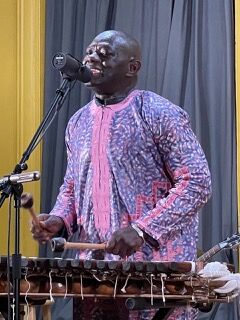
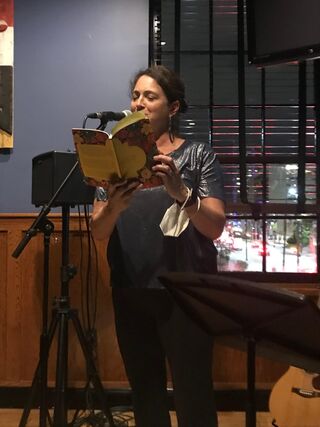
References
Nietzsche,Friedrich [1976] 1956. The Birth of Tragedy Out of the Spirit of Music. (Francis Goffling, transl) Garden City, NJ: Doubeday (Anchor Books)
Feder, Lisa 2021. Jeliya at the Crossroads. New York and London: Palgrave Press.
